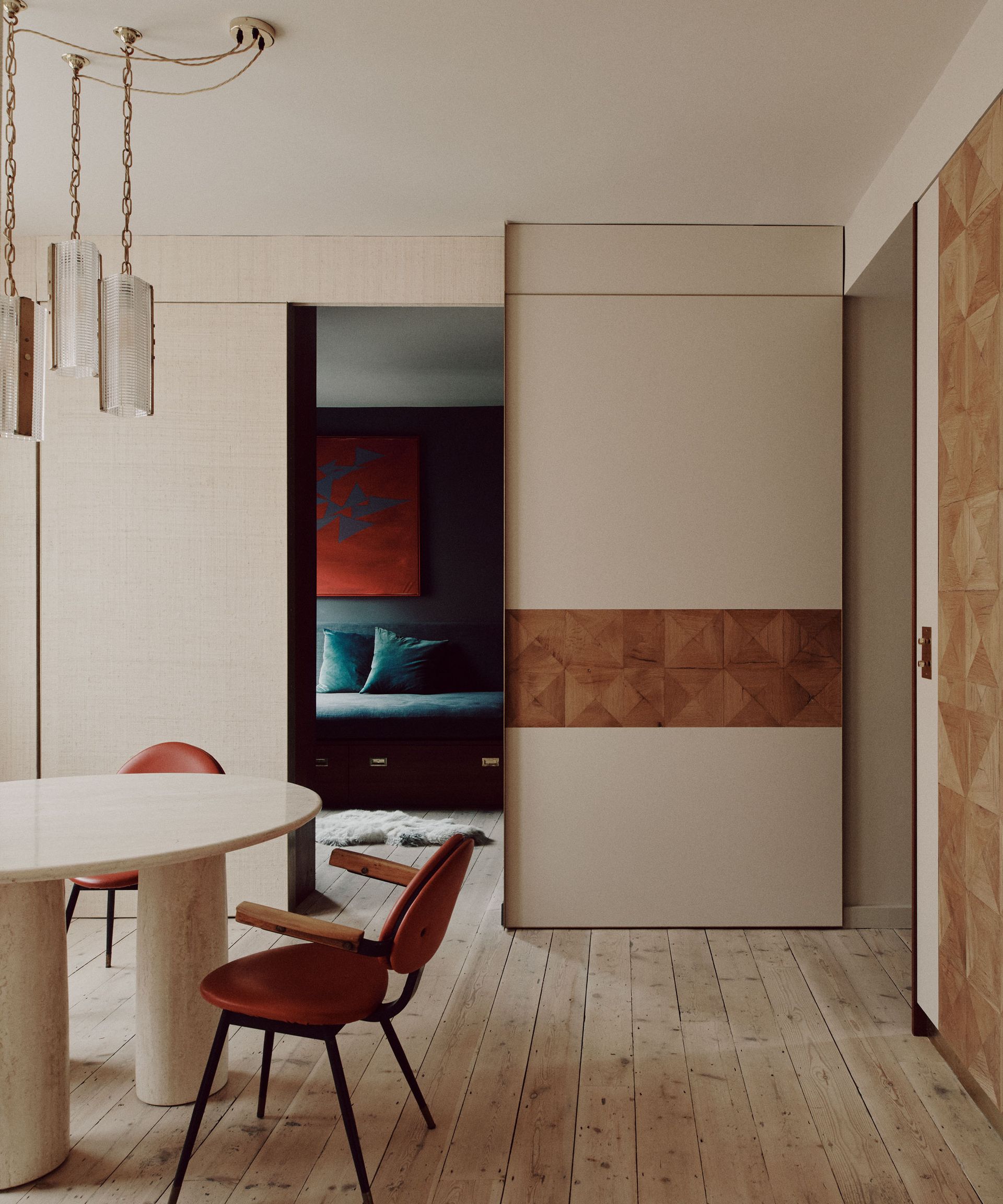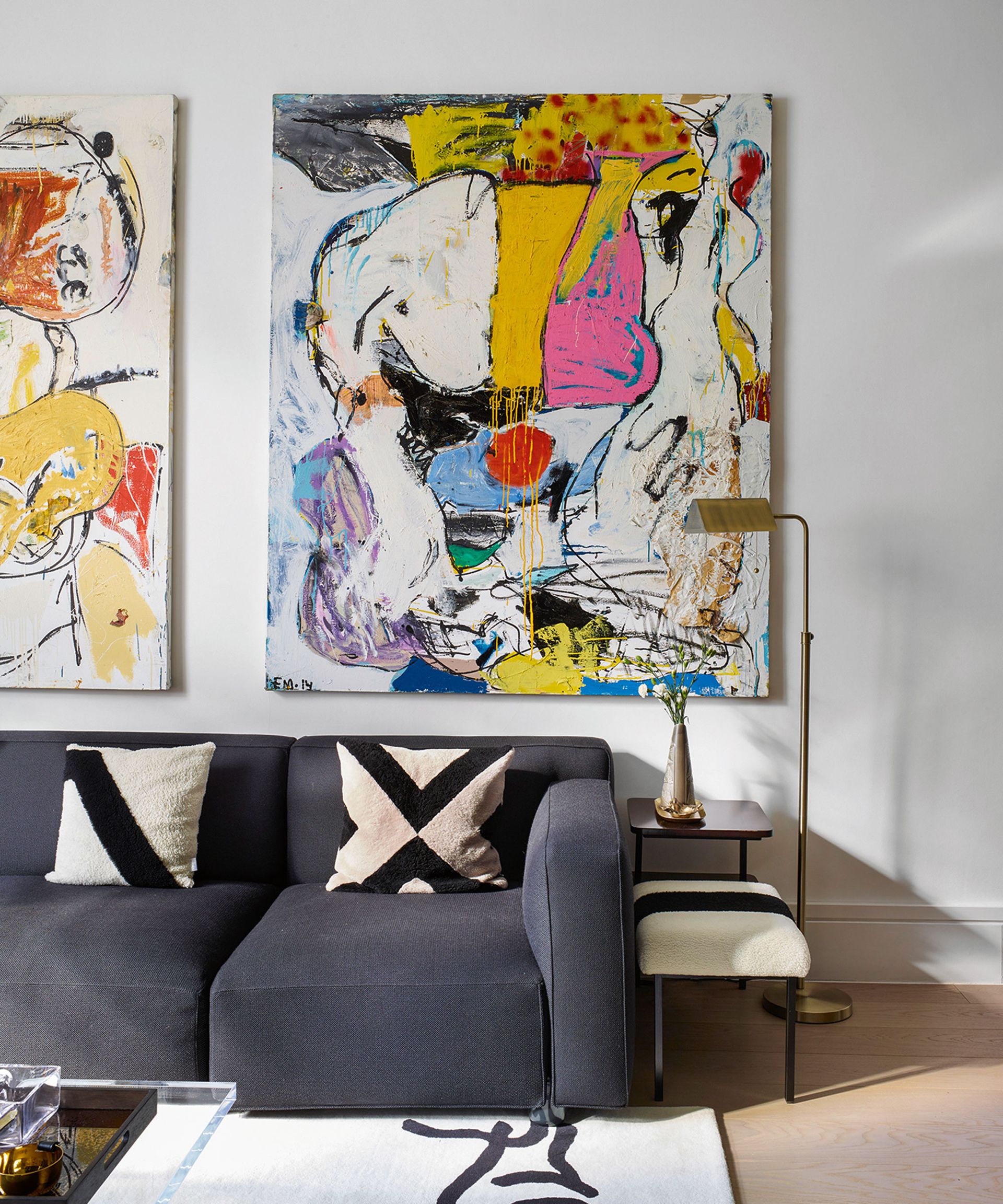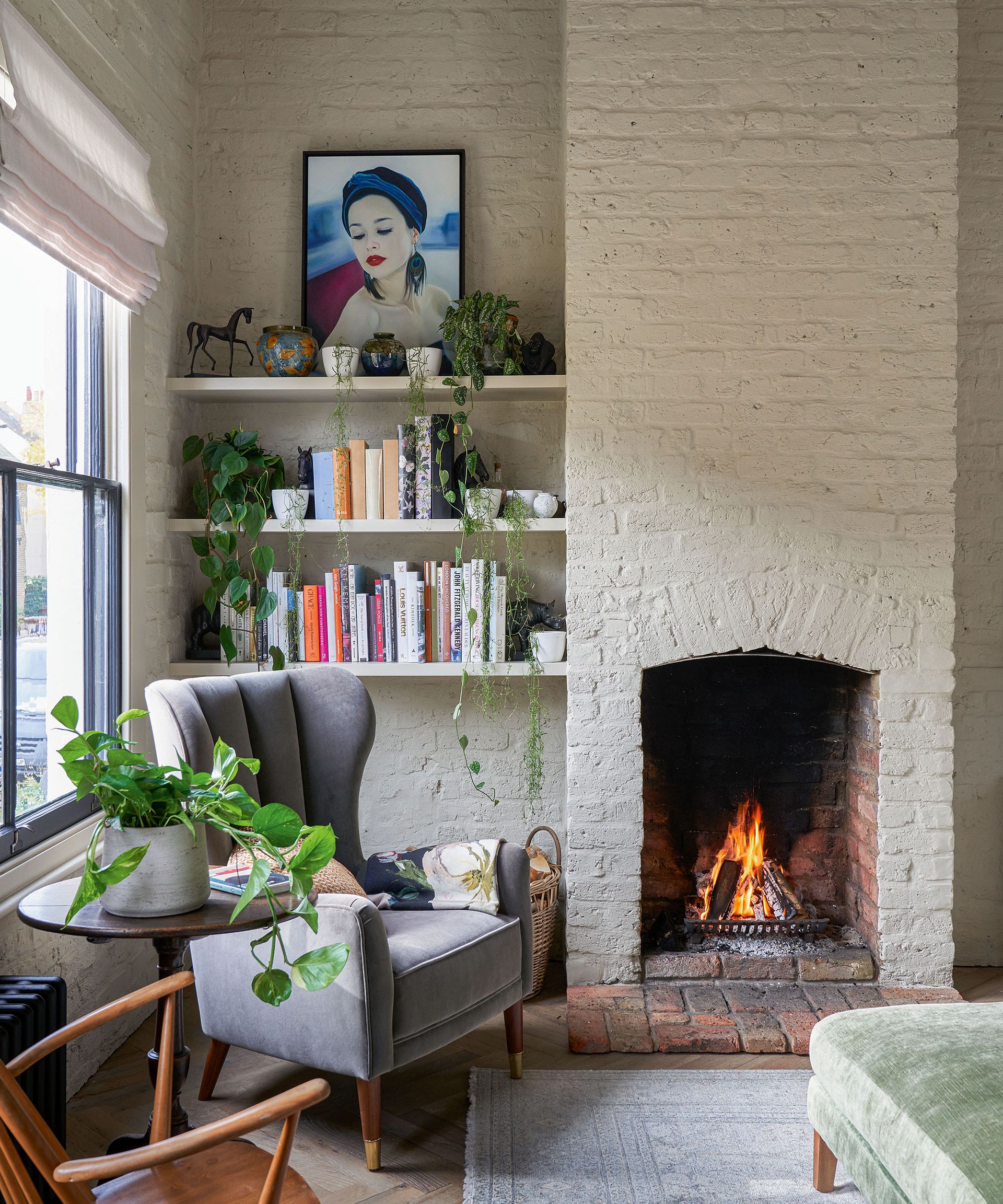I recently visited Berlin, and while there are so many inspiring things about this vibrant city, I left feeling intrigued by its somewhat unexpected design style. I couldn’t help but notice that the style in Berlin – from the way people dress to its home decor – feels very anti-trend and somewhat nonchalant.
There’s an overall relaxed feel to Berlin’s interiors, with an obvious focus on well-crafted vintage furniture and statement artwork. Homes here prioritize making a creative expression that’s personal rather than following any specific trends.
Something is refreshing about this seemingly timeless approach, and it’s one I’m personally inspired by for my own home decor ideas. Below, I’ve rounded up five of the main design lessons I’m taking away from this trip, which may help you too if you’re looking to curate a creative and relaxed home.
1. Embrace distressed walls
Many of the interiors in Berlin embrace a less-than-perfect look with obviously distressed walls, from exposed brickwork to imperfect paint and plaster. While this may not sound like the most appealing look, something about it creates a homely and lived-in feel, embracing daily wear and tear without being too fussy about things looking polished.
While actual distressed walls most likely aren’t something most of us will want to recreate, you can nod to this urban look with the limewashing trend for your wall decor ideas. Limewash paints create a textural and distressed look, and it can be a great way of adding character to a space where solid color looks too flat.
2. Mix vintage and contemporary

(Image credit: Retrouvius/Michael Sinclair)
Berlin is incredibly rich in history, so it’s no surprise to see this reflected in its interiors. There is a clear contrast between the old and new, and a general acceptance of not sticking to one era of decor items but rather welcoming an eclectic approach. Vintage items reflect the city’s history while contemporary additions modernize the overall look and provide balance. Decorating the vintage is something I already love doing in my own home – there’s so much character to be found in old pieces. If you’re not sure where to start with this, interior designer Naomi Astley Clarke shares her advice below.
‘For many, the thought of decorating with antiques previously conjured up images of highly traditional tastes and stuffy old collectibles. But this has changed. People really appreciate how storied items can bring warmth, history, and soul to their homes. Don’t be afraid to upcycle – a modern frame on a more traditional piece of artwork can give it a new identity, and an inherited chair with good bones is easily transformed when upholstered in a new fabric with a pattern that speaks to you.’
3. Show personality through artwork

(Image credit: Rachael Smith / Future)
Berlin has a thriving creative scene and just by walking through its streets, you quickly become aware of the importance of art in this city. But it’s not just street art, art is widely embraced in interiors too. A lot of the artwork I saw on my trip was bold, modernist, and oftentimes making a statement.
Decorating with art is so easy to embrace as there are no real rules. You can choose whichever pieces you’re most drawn to, according to your style. Personally, I love using statement colors in my home to break up neutrals – it’s a great way to uplift an otherwise pared-back room.
‘I can’t stress enough the importance of artwork,’ says David Samuel Ko, founder of Los Angeles-based interior design firm Maison Ko. ‘It can really take any space and bring it to the next level. Bold artwork not only adds intrigue to your space but can also be the grounding element of a room. Selecting art should be a very personal and intimate experience that I think oftentimes gets overlooked. I don’t like choosing art just because – the piece should be meaningful to you in some way. I like it when art is a representation of its owner.’
4. Create an understated look with midcentury furniture

(Image credit: TR Studio)
While interiors in Berlin mix different styles of furniture, there was one that stood out more than most: Midcentury. Midcentury decor and furniture is known for its understated form and clean lines, so it goes hand in hand with Berlin’s industrial aesthetic. I’m a big fan of all things midcentury, but I was reminded yet again of how a midcentury piece can become a focal point of a room, setting a focus on quality craft and attention to detail.
‘Midcentury furniture is timeless and can work in any style home,’ says Fiona Stone, designer at Kingston Lafferty Design. ‘The nature of its characteristics: sinuous organic shapes, rich timbers, metal frames with bold, geometric patterns resonates to this classic era, creating the ultimate statement. It is important to mix this style with contemporary or antique and other styles to create balance to these bold pieces.’
5. Add lots of natural greenery

(Image credit: James Merrell / Future)
The final decor lesson I’m taking from Berlin is to incorporate lots of indoor plants. Oversized houseplants are common in interiors here, providing a homely feel that offsets the otherwise stripped-back aesthetic. There are so many different houseplants to choose from to bring a sense of nature’s calming quality indoors, and you can style them throughout the whole home – from the kitchen to the bathroom.
Sometimes less is more when it comes to decor, and that’s certainly apparent with Berlin’s pared-back interiors. By focusing on well-crafted furniture pieces that withstand the test of time and adding color through artwork, you can create a home that feels personal and timeless.